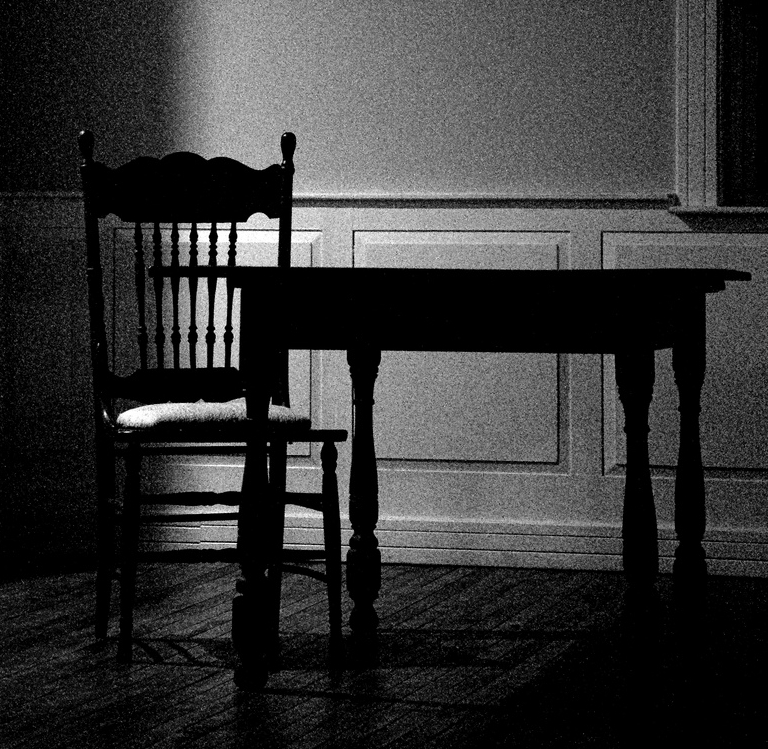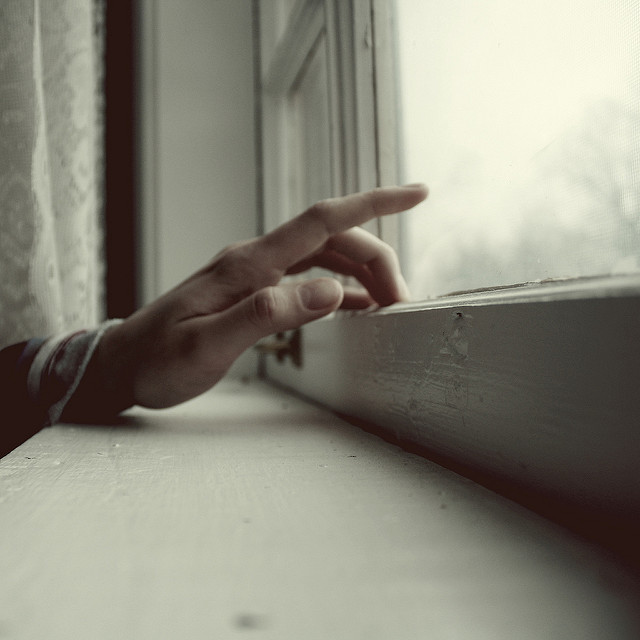As board gaming continues to grow in popularity, it is reaching whole new swaths of potential gamers. With that comes not only whole new ideas about the games themselves but also new perspectives on matters of theme, culture, representation, and inclusivity. While this undoubtedly has and does lead to clashes of opinion as the landscape of board gaming slowly incorporates more diverse voices into the fold, there still exists the belief that the community overall will be better and stronger for it in the long run. That is, if we let it. If gaming is for everyone, then, as this series advocates, we must be willing to pursue that goal by collectively going All In.
![]()
Death.
The reason I landed on the article series title “All In” is because I believe that board gaming is all about the people involved and the community we create. Often, hobbies are used as a way to escape the responsibilities of the every day, to relax, and to have fun. Our hobbies become insular, a bubble that presents as separate from the less than flattering things that happen in our world and life. But for me, gaming is more about the people than about the particular games I play. Because I view board gaming from a people-first perspective, the hobby is not and cannot be insular from everything else that comes with being with other people. I choose to write about the dynamics I see and experience in the hobby not to redirect our attention from fun – I do it to build awareness amongst my fellow gamers about the very real dynamics that impact our hobby – whether we like it or not. You simply can’t separate the act of gaming from those sitting at the table with you. While I have written mostly about community dynamics and identity to that end, I need to focus today on a topic that really no one likes to talk about: death.
I never before have thought about death in the context of my hobbies, particularly in board gaming. I also spend time backpacking and hiking mountains, and with those hobbies there is more focus on my part with safety and preparedness to prevent injury or death. But…board games? It’s not my first thought during a game night. Or second. Or tenth.
If I take a step back and look at it objectively and statistically, then of course death is bound to touch our game core group, our peripheral gaming friends, and the larger gaming community. Because, well, we all have to contend with death at some point in our lives – whether it’s family, friends, or ourselves. Death does not discriminate simply because we choose to ignore it in our hobby spaces. It’s not an observation made to try to be a downer. It’s trying to be realistic about our experiences as people brought together over a shared interest. And losing someone, inevitably, affects all of us sooner or later.
The past two months have been challenging to say the least, hence my general absence from this space. In addition to supporting my academic community as a professional, helping everyone there cope with someone passing, I received an email from one of the game groups I used to frequent, letting me know that one of the long time members – let’s call him Rick – had passed away as well.
At first, I was unsure of how to feel or react. For one, I was already deeply impacted in my professional role, and more tragic news did not help. On the other hand, I did not know Rick very well and I am often unsure what I should be feeling when I receive news about the death of someone I didn’t know particularly well. Rick was one of those people that I would consider a gaming acquaintance – someone who I would see and be friendly in a game setting but probably not hang out with outside of a gaming context.
There are many people in this hobby who I would consider friends and would gladly spend time with doing other things. If a closer gamer friend had passed away, I definitely would have had a more significant initial reaction. Yet as more and more messages flooded in from this former game group, it was evident that Rick had a profound and deep impact amongst many people there. Many members were understandably sad at the news of Rick’s death, while others were plunged into grief at the loss of a close friend. And although I found myself conflicted on how I personally should be feeling, it was hard not to feel sympathy for those affected by Rick’s passing. Not as gamers. Not as former community members. But as everyday people whose lives were upset by this sudden hole in their lives.
I have a distinct memory of the last game I played with Rick. We played Fairy Tale, a small card drafting game with a generic fantasy theme. I don’t recall who won that game or any lasting details about the gameplay itself. What I do remember is starting that evening with a lighter game, having time to socialize and catch up on each other’s lives, and overall, having a fun start to a night with that game group.
Shortly after Fairy Tale, Rick left for the evening. It was a typical game night with the same typical gaming folk, an unremarkable and innocuous interaction. Though it is easy to assign value and meaning to such interactions in hindsight. Because I had no idea that game of Fairy Tales was the last time I would ever see him.
I hadn’t thought much about that game, or that particular night, until a couple weeks ago. Neither held any particular significance in of themselves. But now? Now it has been magnified due to a loss of life. It has created an experience amplified not through the game itself but by and with the people involved in it. The community surrounding it. It forged an experience far more meaningful than anything the game itself could have ever created simply by playing. That is the true power of what games offer, those human connections.
What if we played each game with that level of significance? If you knew this was the last game you would ever play with the person across from you, what would change about your engagement? Board games will always be around, but the people playing them with you will change. At the end of the day, would you rather remember the game or the people you sat down with?
We do not know the last time we will see the person sitting across from us at the gaming table, be it friend, stranger, or someone in between. We might not know much about them, their life experience, or what they may be going through at that moment. While it’s practically impossible to connect with every single person on a profound level, we should all occasionally take a step back and realize that the people in our hobby are full humans with unique experiences.
As a community, we should lean into that. Let’s truly embrace the mantra of “board gaming is all about the people” and less about the actual game we are playing. Let’s acknowledge the fact that loss impacts everyone differently depending on context and experiences.
In the United States, we so hyper-focused on the individual so much that many internalize our pain and hardship by default rather than reach out, and we like to champion the idea of self-care when things take a turn. My challenge to that idea is…show me also what ‘community care’ looks like. How are we reaching out to others in times of tragedy, hardship, and challenge? What stops us from saying, “I know this bad thing happened and I just wanted to ask how you are doing.” By not asking the question, by not actively and intentionally caring for each other with even basic levels of empathy, how can we truly be the people-centric hobby we insist it is? How many people are sitting there wondering why no one is asking them how they are doing right now after going through an ordeal? Probably more than you realize. So, ask. Don’t pressure or pry. But you’d be surprised how meaningful just the gesture itself can be.
It’s a scary question to ask, especially around death and major tragedy. Empathy is difficult, it takes effort, and sometimes we simply may not have it in us at that moment for a host of reasons – I get that. But to be the community we want, we have a responsibility to one another to truly and genuinely care about each other as individuals and not merely living automatons controlling those player pieces on the other side of the board. And so I challenge you to ask yourself: what do you value in board gaming, and how do you want to show up to help elevate the level of caring in our community?
![]()
Brendon Soltis is a contributing writer and an avid fan of the idea that greater understanding can be fostered through gaming. He can be best reached via Twitter.
Feel free to share your thoughts with us over on our social media pages!
Photo Credits: Statue by Matt; Chair by Roey Ahram; Reaching by [ christina ]; Compassion by aagelaki




